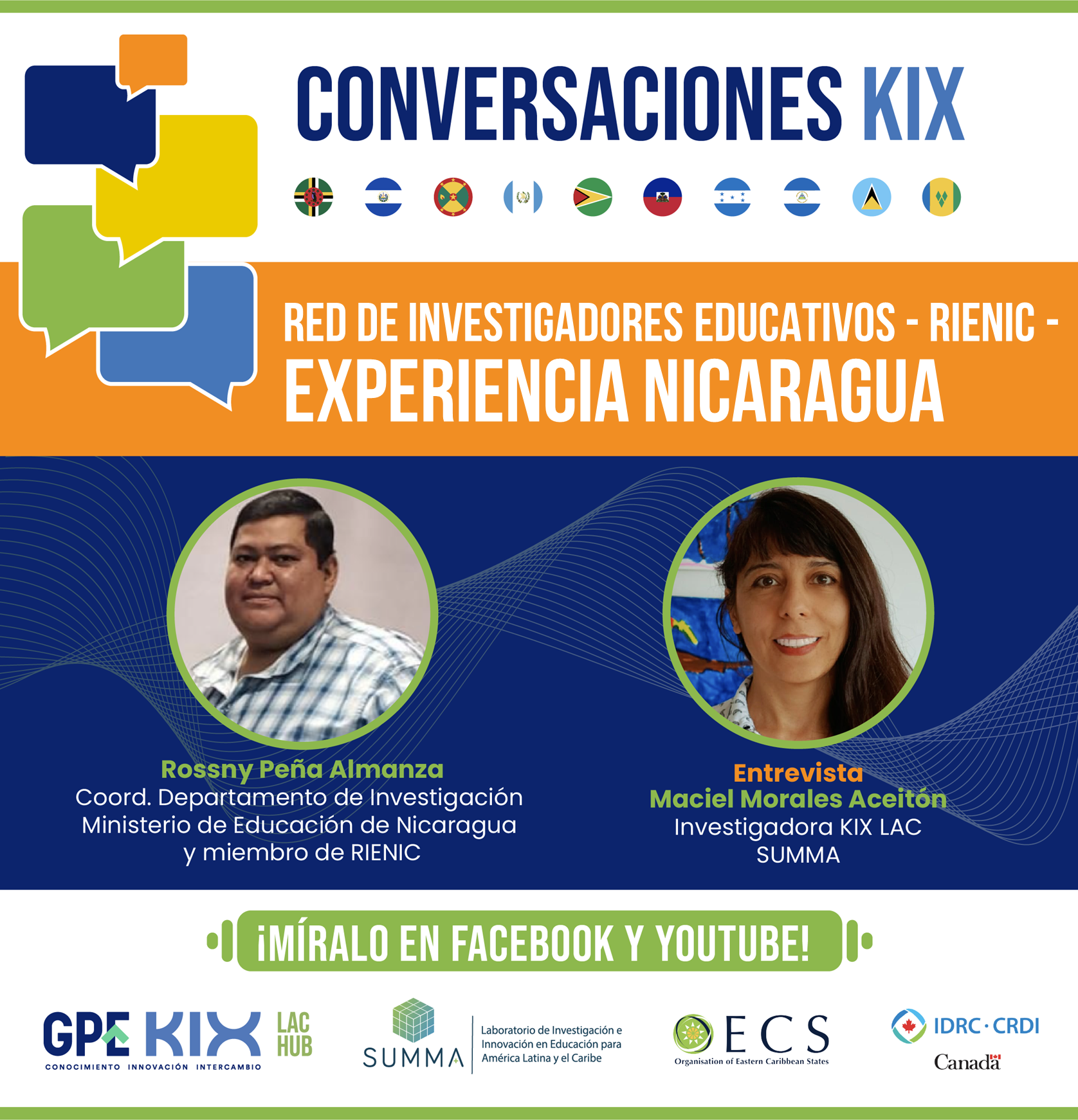
The thirteenth edition of the KIX Conversations included the attendance of Rossny Antonio Peña Almanza, head of the Educational Research Department of the Nicaraguan Ministry of Education, member of the Network of Educational Researchers of Nicaragua (RIENIC) and representative at the KIX LAC Hub for this country, who was interviewed by Dr. Maciel Morales Aceitón, KIX LAC researcher.
The Network of Educational Researchers of Nicaragua was created as part of a process of coordination in an effort to improve research quality. It is made up of educational counsellors from the Ministry of Education, teachers of elementary, secondary, higher education and teachers of national technology, directors of educational centres and students. All of them focus on strengthening and developing a research culture within the country’s educational community, through research on how to address needs and formulate projects and programs that generate significant changes in the institutional work of each educational subsystem.
According to Peña Almanza, research must be a motivation in itself, and must be carried out by people who are interested in acquiring new knowledge. Therefore, this is one of the fundamental qualities that all people who wish to belong to the network should have. The way to connect with the group and become a member is through a voluntary selection process, which is done annually through a public call.
When asked about the limitations for research development in Latin America and the Caribbean, the researcher emphasizes that one of the main challenges is the lack of a research culture, “many times, we accommodate ourselves to what we are doing and do not question the ways in which things are being done, and we ignore research as a necessity to provide solutions to problems and from it, generate new knowledge and help to solve needs”.
Finally, Peña Almanza invites new generations to get involved in investigative issues, highlighting the importance of data and studies for decision-making. Likewise, regarding the work carried out by the Ministry of Education, he stressed that, “We share our experience, and hope that it will help other educational systems; but I believe that at the national and regional levels, it is necessary to strengthen the investigative culture among teachers, because they are the ones who are going to generate that investigative culture through learning processes. Let us change the mindset from only reproducing knowledge to one of generating it, encouraging students starting from elementary education to get involved in research without feeling that it is something traumatic, but knowing that through research results are achieved that can transform the reality of a school, a neighbourhood or an entire country.”
